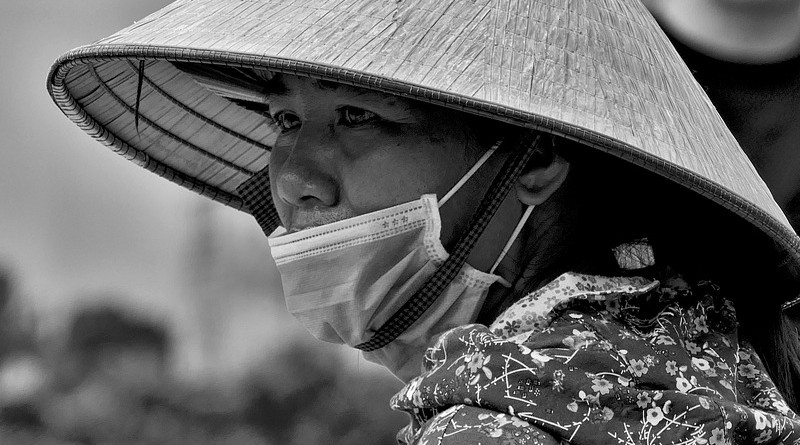The Need Of Research-Based Policies For Developing Countries In Post COVID-19 World – OpEd
The year 2020 unveiled the additional challenges, beyond expectations, in the form of pandemic COVID-19. The people irrespective of region, field or age group were affected by this pandemic is numerous ways. All the countries are facing the aftermath of this crisis with varying intensity. The initial response of the governments to this crisis was mixed in terms of imposing partial or complete lockdown in their respective countries. The policymakers and researchers globally got busy in finding solutions to deal with the crisis in their respective fields from developing a vaccine for virus treatment to develop policy tools for severely affected economies. On one side, the pandemic proved to be highly devastating; it has also taught us several lessons.
The initial cases of virus were detected in South Asia much later than in other regions of the world. The pandemic started from China in December 2019 and later spread to Europe. So, South Asian countries had ample time to develop a strategy to control or at least reduce the devastating effects of the virus. However due to unpreparedness, ambiguous policies and careless attitude of people in following the Standard operating procedures (SOPs), the situation gained momentum and virus spread at an exponential rate.
The significance of good quality research and formulating policies on the basis of research has been felt more scrupulously. Although the pandemic has affected almost all parts of the world but it has also been observed that the composition of COVID-19 cases differs between countries and regions. This highlights the need for country-specific research and data analysis which can help the policy-makers to devise policies and plans for targeted interventions.
Currently, the policymakers across the world are facing two major challenges. On one side, they have to devise strategy for controlling the spread and recurrence of COVID-19 and on the other side, they have to develop a bailout plan for severely affected economy. The financial crisis caused by the pandemic is the biggest economic recession that developing countries are witnessing. This also revealed the wrong priorities and poorly designed policies of the developing countries in the past. The weak health and education structures, climate change, food insecurity and densely populated cities have further raised the questions about the preparedness to face any natural disaster like earthquake or another pandemic.
While, it is big challenge for developed countries to cope up with the current situation and control the spread of disease, developing countries are faced with further more challenges of poverty and poor infrastructure. Social distancing is nearly impossible in densely populated metropolitan cities, non-availability of clean water is a big challenge for maintaining hygiene or properly handwashing.
According to World Health Organization (WHO), in Bangladesh, there are an estimated 3.05 physicians and 1.07 nurses per 10,000 population. The situation is no different in other developing countries. It is high time that the countries should learn from the past mistakes and start making decisions that can prevent the upcoming generations from any catastrophe in future. This can be achieved if the public policies are formulated with proper research and quantitative analysis. The policy-makers, researchers, academicians and experts from the relevant fields need to sit together and discuss the short term and long-term policy plans and their expected outcomes.
For bridging the gap between the policy institutions and academia, there should be better communication and linkages. This could be achieved by organizing seminars, webinars, and engaging both sides through social media etc. The academics should utilize the popular media for conveying their findings to the policymakers and practitioners. For this, academicians/researchers may communicate the findings of their scientific research paper to the policy practitioners by transforming into a compact policy brief.
In addition, planning institutions and statistical departments should provide internships to the students so that they can get an opportunity of working with policymakers and gain practical insight about the processes involved. Developing a culture of facilitating researchers and students by the government departments is also very vital as future of a country belongs to them.
The academia can also play their role in gathering information and creating awareness among people. “The Corona Relief Tiger Force in Pakistan” is an example of volunteers-based initiative. According to the figures published by the government, around 400,000 students, including 45,000 academicians, 50,000 engineers and 5000 lawyers registered themselves for this volunteer force.
The initial aim of this task force was to create awareness among people from ensuring social distancing in mosques, shopping areas etc. and helping emergency cash transfers to the poor and vulnerable segments of the society. As the COVID-19 situation got better in Pakistan, the government has engaged the volunteers based “Tiger Force” in tree plantation campaign in order to deal with the challenges of climate change. The tree plantation campaign is considered as country’s largest campaign with the aim of planting 3.5 million saplings in the country in a single day. Later, this task force can be transformed into research task force and engage them for collecting statistics /information about the effects of COVID-19. This task force can also help government in outreaching the informal sector which has been severely hit during the pandemic.
Similar “Volunteer’s based model” involving youth in the developmental initiatives can be adopted by other developing countries. This will not only provide a support to government but will also engage the younger generation in productive activities. With collective efforts, it is possible that we overcome the aftermath of current pandemic and plan a better future for generations to come.
*About the author: Noorulain Hanif is an Economist and a Chevening Scholar. She has worked on research projects with The Asian Development Bank (ADB) and as Research and Policy Specialist at the Directorate General of Trade Policy (DGTP), Ministry of Commerce, Islamabad. She has also experience of working with various other public and private sector think tanks.

